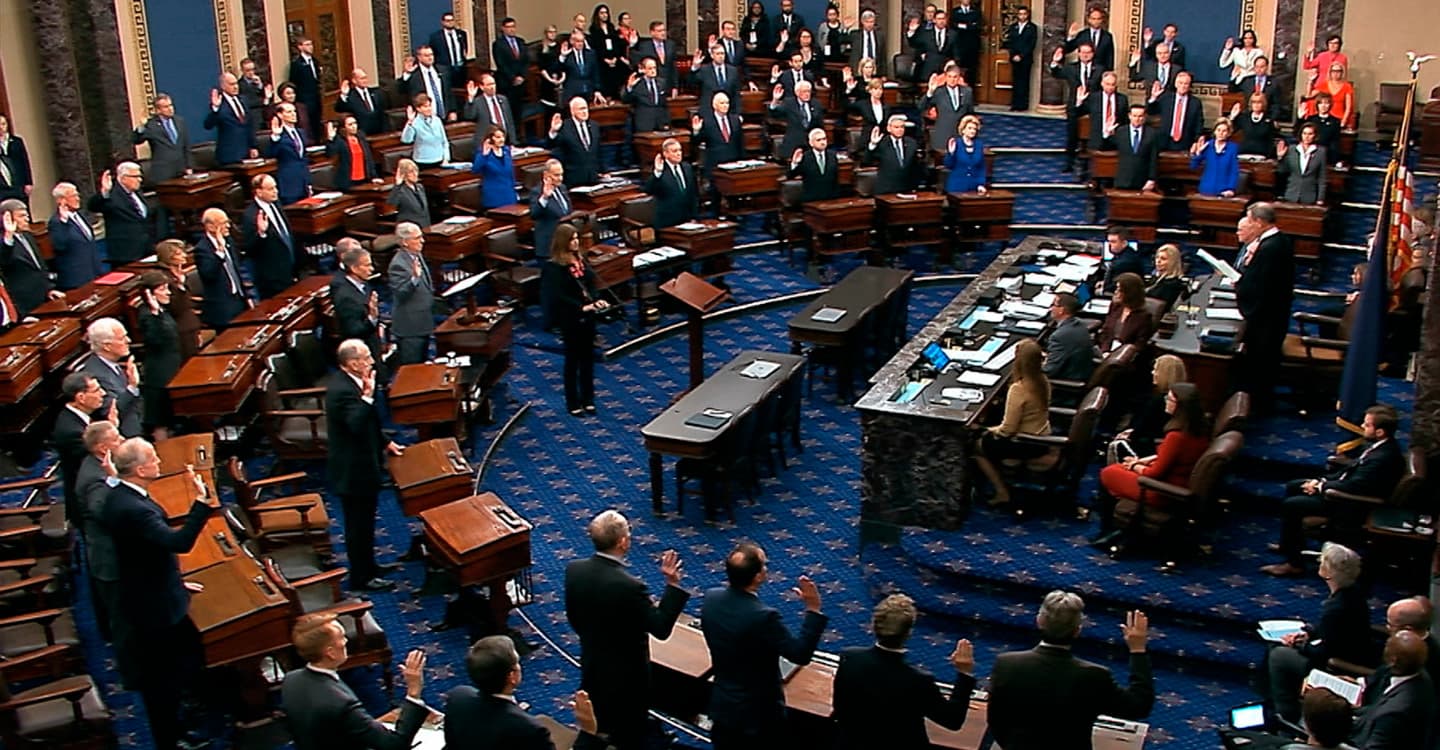Leah Millis-Pool/Getty Images
President Trump during his State of the Union Address on Tuesday
President Donald Trump has been acquitted, or cleared, of the charges against him in his impeachment trial. The U.S. Senate rejected the charges, bringing the third presidential impeachment trial in the nation’s history to a close.
Trump had faced charges brought against him by the U.S. House of Representatives, following an investigation this past fall. The charges led to Trump’s impeachment by the House. That means the House officially accused him of serious wrongdoing. The two charges, known as articles of impeachment, were abuse of power and obstruction of Congress (interfering with Congress’s investigation of him).
Trump then faced trial in the Senate. Lawmakers from the House presented their case against the president. The chief justice of the U.S. Supreme Court oversaw the trial. The president was defended by his personal lawyers. The Senate, which acted as the jury, voted on the charges—and whether or not to remove him from office.
The votes in the Senate were almost entirely along party lines. Trump is a Republican, and almost all Republicans in the Senate voted against the charges. Senator Mitt Romney of Utah was the only Republican to break with his party and support convicting Trump, on one of the charges, abuse of power. Votes on both charges fell well short of the minimum number—67— that would have been required to remove Trump from office.
The Framers of the Constitution created the impeachment process as a way to remove a president or other government official who is found guilty by Congress of significant wrongdoing. The Framers gave Congress the job of deciding whether a president should be impeached and removed from office. A president doesn’t have to break a law to be impeached. Serious misconduct, abuses of power, and violating the public’s trust that he or she will do what is right for the country are considered impeachable offenses too.
Why was the president impeached by the House and acquitted by the Senate? And what does it mean for Americans? Read on for an explanation.

